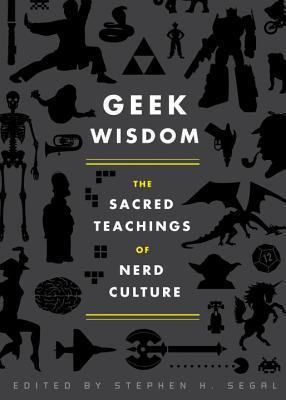What do you think?
Rate this book


229 pages, Kindle Edition
First published January 1, 2011
There’s a central dilemma they deal with: Because most geeks have, historically speaking, generally identified as outcasts on the margins of society, they often have trouble understanding that it’s possible for some geeks to be marginalized even within geekdom due to other qualities of identity, such as gender, race, and class.
We all tend to believe that our own best characteristic represents “true strength,” just as we’re all instinctively inclined to believe that a person who agrees with us a lot must be a very smart person indeed. Therefore, as intellectuals, we find physical force abhorrent in the extreme, in part because it just plain is, but also in part because our self-esteem depends on believing that mental power is more important.
We geeks all share an important trait. It’s not just that we can imagine—everyone can—it’s that we’re not afraid to.
The question was: "What was your religion when you were growing up?" And my answer was: "Uh, science fiction, pretty much."
I meant it as a joke. I was poking fun at myself, saying that I'd been such a freaking geek as a kid, watching Star Trek and reading Tolkien and writing computer programs and building TARDIS models, you'd think that stuff was my religion. But as soon as it came out of my mouth, I immediately understood this was no joke. It was absolutely 100 per cent true in a way that I'd never thought of before--and, furthermore, it was a good thing.